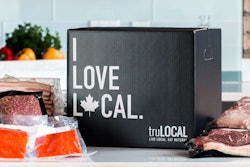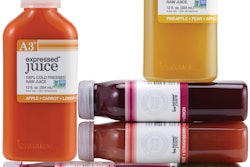Presumably, federal legalization will allow for branding that crosses state lines and removes the uncertainty that is holding back some packagers from getting involved in the market.
After all, with cannabis and CBD products, there has developed an unholy combination of uncertainty about what the federal government considers illegal, with hellaciously large public desire for these products. State after state makes cannabis and CBD products legal, but still federal law declares most of them illegal. At least life was a little easier for packagers during the years when the feds followed a policy of not enforcing federal prohibitions against folks who, for example, complied with the requirements of an individual state that had legalized cannabis products. But the memorandum that policy was based on was withdrawn a few years ago, and federal policy since then hasn’t been as clear.
It’s been recognized widely for a long time that the solution to this kind of conundrum would have to involve changing the federal law, not merely FDA enforcement priorities about foods and drugs.
Cannabis (aka marijuana) is still a “Schedule 1” drug according to federal law—on the same list as heroin and LSD—meaning that it has “no currently accepted medical use and a high potential for abuse,” says the Drug Enforcement Agency.
Recent years have seen an increasing number of U.S. states change their laws: 15 states and the District of Columbia have legalized recreational marijuana, and 36 states OK medical use.
Reportedly, FDA had sent some proposed changes in law and policy to the White House for review back in June 2020, but they never came out the other end, and now the Biden administration put a hold on all pending changes. But there’s reason to think its time has finally come once the Biden team gets its feet fully under it.
And now, word is that the new Senate Majority Leader Chuck Schumer and other lawmakers support federal legalization of marijuana (and want to undo some of the effects of the decades-old “war on drugs”), as do a reported majority of the public.
But it’s all so supremely odd. Who would have guessed years ago that it would be easier to clear away the cultural and social taboos around pot than the legal restrictions? When I think of marijuana, I think of the pervasive, angry, us-versus-them “generation gap”, to coin the 1960s phrase, as young people pushed back against the Vietnam War and their parents’ traditional roles and values.
And sitting squarely in the center of that culture war was pot. A symbol of rebellion, perhaps the central one in those days, it was a stand-in for all the rejection of tradition and loss of order that older generations feared the younger ones were unleashing.
And now, puff!, uh, poof!, it’s getting legalized, and most of the public supports it. Except that while legalization seems to be happening quickly, it’s not happening in an especially orderly way, so you end up with a mix of legality in states, plus illegality on the federal level, all of which combines to cause uncertainty.
That pesky Farm Bill from 2018 only added to the confusion. Lots of folks think it made cannabidiol (CBD) legal, and it did for some purposes and products, but very clearly not for dietary supplements or other foods, says FDA. Yes, the 2018 Farm Bill removed industrial hemp containing less than 0.3% of THC—the stuff in cannabis that gets one high—from the list of “controlled” substances, but, importantly, that didn’t change anything about FDA’s powers, and FDA has since then made clear that CBD cannot lawfully be put into dietary supplements or other foods, or into new drugs that aren’t FDA-approved.
FDA has appeared to focus its energy lately on sending Warning Letters mostly to makers of CBD-containing supplements that make health-related claims (which FDA asserts aren’t true), but FDA has said that even supplements with CBD in them but no label claims of effect are illegal too. The Federal Food, Drug and Cosmetic Act prohibits dietary supplements from containing a drug ingredient, and FDA approved CBD as an active ingredient in a drug for rare forms of epilepsy in 2018. Some advocates of CBD might take issue with whether that prohibition applies to all CBD products, but whether that argument flies remains to be seen. Also, though, FDA says it thinks there are remaining questions about CBD’s safety, so it doesn’t think CBD is Generally Recognized As Safe (GRAS) as a food ingredient.
CBD’s status could get solved rather quickly via a bill that was proposed during the last Congress. The 2-pages-long HR 8179, the would-be “Hemp and Hemp-Derived CBD Consumer Protection and Market Stabilization Act of 2020,” would simply make lawful for use as a dietary ingredient in a dietary supplement “hemp, cannabidiol derived from hemp, and any other ingredient derived from hemp,” if it complies with FDA’s requirements for “new dietary ingredients” and all other applicable FDA requirements like GMPs and labeling strictures.
Meanwhile, lawmakers in New York State have proposed a similar framework legalizing CBD-containing supplement products that specifies a number of packaging and labeling requirements.
According to Dr. Sanford Wolgel, a consultant and former chief science officer for Cannabistry Labs, many industry observers expect federal cannabis constraints on both research initiatives and commercial businesses to be loosened soon. “The momentum is there already.”
For those who have advocated federal changes to cannabis and CBD laws, in 2021, hopes are—say it with me now—high.
Eric Greenberg can be reached at [email protected]. Or visit his firm’s Web site at www.ericfgreenbergpc.com.
INFORMATIONAL ONLY, NOT LEGAL ADVICE.

























